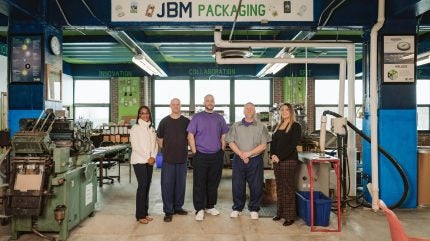
A new skills training scheme at London Correctional Institution in Ohio is aiming to support individuals preparing for release from prison by offering hands-on manufacturing experience and the chance of future employment.
Developed by JBM Packaging in collaboration with Ohio Penal Industries (OPI), the programme is focused on preparing participants for careers as machine adjusters within the packaging sector.
Unlike many similar initiatives, participants are paid industry-standard wages while undergoing training. The course is part of JBM’s wider Fair Chance Programme, which supports people with criminal records in rebuilding their lives through work.
Practical skills and steady income
The scheme provides structured training on complex manufacturing machinery, with participants advancing through several levels of instruction.
Alongside the technical training, individuals are introduced to the company’s Better Lives programme, which offers coaching, financial literacy education, and support services to assist with reintegration.
JBM is OPI’s first partner in the paper packaging industry. Once production begins, it will offer the highest wages for trainees and be the first to provide wages at market rates.
First trainee completes course
Since the programme began at London, one participant has completed the training successfully, with two others currently working through it ahead of their release dates.
The training is designed to prepare individuals for long-term employment and to reduce the barriers many face when re-entering the workforce.
According to Amanda Hall, a training specialist at JBM who was previously incarcerated herself, the machine adjuster role is demanding but rewarding, requiring both resilience and mechanical skill.
Addressing barriers to re-entry
The initiative forms part of JBM’s broader effort to provide employment opportunities to those who may struggle to find work after prison. Over the past seven years, the company has hired more than 125 individuals with criminal records.
Ann King, Chief of Ohio Penal Industries, described the scheme as a strong example of how public-private partnerships can offer meaningful work, training, and wages that support a more stable transition to life outside prison.
JBM’s approach aligns with a growing movement in the United States to reduce reoffending by offering stable employment and practical support to people leaving incarceration.



